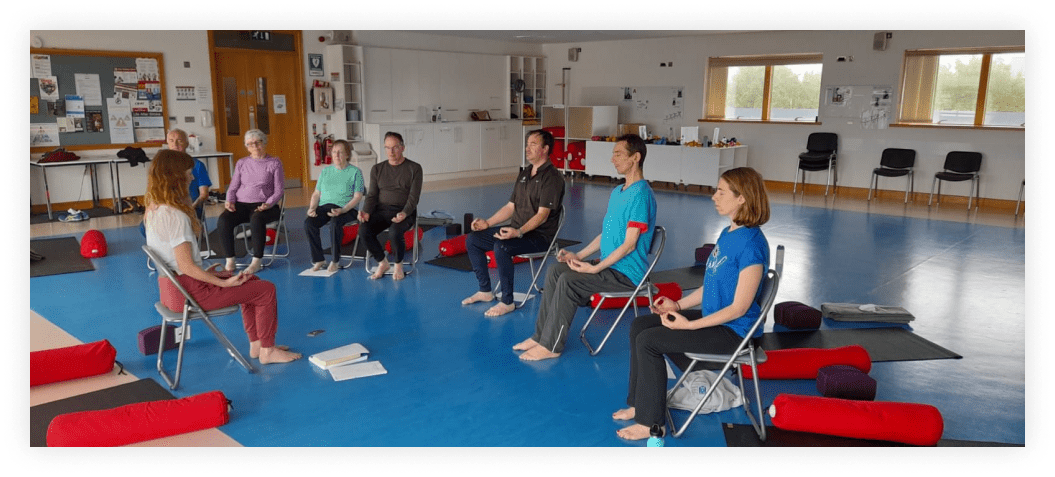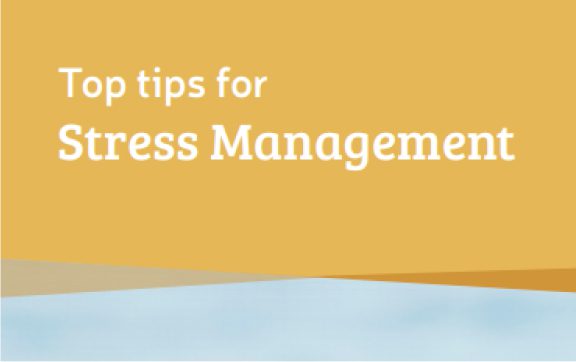Stress
Home / Heart / Risk Factors / Stress

Stress
High levels of stress will have an impact on your health, so learning how to manage stress is important for a healthy body and mind. Depending on the cause of your stress, this risk factor may be one you have little control over! However, you can develop ways to cope with stress and therefore reduce its effect on your health.
Although stress doesn’t seem to directly affect your risk of heart disease and stroke, the way you choose to cope with stress can. When people are stressed they may smoke, drink in excess or overeat – and all of these things can affect your heart.
If you have a heart disease or a history of heart disease, being anxious or stressed may bring on symptoms like angina (chest pains). It is impossible to avoid stress completely, but what you can do is learn how to manage stress. This will help to keep your heart healthy and improve your overall feeling of wellbeing.
Stress means different things to different people, but usually stress is feeling that you have too much to cope with at one time. Stress can be positive if it helps you to get things done but negative if it leaves you feeling anxious and upset. People can be stressed about work or being unemployed, by family problems, worries about health and so on. Some problems may be temporary but others may not, so it is important to learn how to manage your stress so that it doesn’t become another problem for you.
There are lots of different things you can do to manage stress – and different people have different ways of coping. Here are some suggestions for managing stress. Don’t worry if they don’t all suit you – pick the ones that you think you can work on and go from there.
- Learn to say ‘no’. You do not have to turn down everything but if you find you are on every committee and running every project, then learning to say ‘no’ can be very important. No-one wants to feel that they are letting everyone else down, but you can’t be the person that does it all. Don’t let guilt make you take on jobs you don’t want or projects you don’t have time for. There are other people out there who could do the job.
- Delegate. We all like things to be done a certain way, but trying to do everything yourself will leave you tired and stressed. Let someone else help. They may not do it exactly the way you would, but as long as the job gets done, that is all that matters!
- Accept offers of help. You don’t have to prove to the world that you are superhuman. Let someone else take on a project or help you out at home. Remember, if you keep turning down offers of help, eventually people will stop offering.
- Avoid people who stress you out. There are some people who are difficult to be around and who leave you feeling upset or annoyed. Spend less time with them or talking to them.
- If driving in traffic is a stress for you, find a different, less stressful route or focus on relaxing in your car. A great technique is to look out for people to help on the road – e.g. people who need to change lanes or pull out from a side road. This way you will get lots of friendly waves and smiles on the way home rather than lots of horns blowing and fists shaken!
- Agree with someone! You don’t have to be right all the time and you don’t have to keep having the same argument with the same people. Agree to disagree and talk about something else.
- Try not to micromanage. Micromanaging means focusing on every tiny detail of every job or project that someone else is doing. And this is not just at work – we can do this at home as well! So do not complain if someone doesn’t stack the dishwasher the way you like it stacked – just be glad they offered to help!
If you can’t avoid the stress, is there anything you can do to change it?
- Talking about problems can really help.
Don’t be tempted to bottle everything up. The phrase ‘a problem shared is a problem solved’ is really true. If you have someone you can confide in, then do. If not, it is useful to talk to a professional. This does not mean you are crazy! It can be easier sometimes to talk to someone professional in confidence. - If you have a problem with someone, try to speak to them – calmly!
And if you cannot solve the problem, can you at least compromise? - Stand up for yourself.
Learning to be a little more assertive can help you to take control of the things that are causing you stress. - Deal with problems.
Ignoring them does not mean they will go away. Face problems head on and do what you can to solve them. - Manage your time.
Planning what you need to do and when you need to do it can help you to stay on top of everything and you are less likely to be in a last-minute panic.
There are some stresses we cannot change: death, serious illness, financial concerns. Here we need to work on accepting them. Trying to change them or fighting against them can bring on a lot of stress. Some people spend years trying to save other people – you need to accept that the only person you can change is yourself. Try to accept mistakes that you have made – we cannot go back and change the past but we can learn from it and learn not to make the same mistakes again. Learn to apologise and learn to forgive. Other people make mistakes too and holding onto anger only makes you feel upset – it has no effect on the other person! If you have contributed to a situation, do what you can to resolve it and talk to someone about it. Talking to someone outside the situation can help to give you a different perspective.
Doing things you enjoy is a great antidote to stress – go for a walk, take a bath, paint or draw, take up knitting or meet a friend. You may have worries but that doesn’t mean you have to sit at home and think about nothing else! Worrying never solved anything and you will feel better for having done something to take your mind off your problems.
